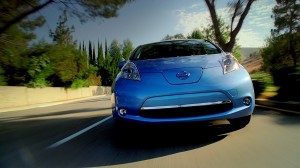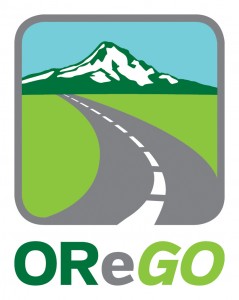 A bipartisan super-majority of California legislators took a courageous step this year to pass SB 1 (Beall), which raises the gas tax and vehicle license fees to help pay for backlogged repairs to our crumbling transportation infrastructure. Opponents are now mobilizing for a recall campaign against state senator Josh Newman of Orange County over the vote and to repeal the legislation by voter initiative.
A bipartisan super-majority of California legislators took a courageous step this year to pass SB 1 (Beall), which raises the gas tax and vehicle license fees to help pay for backlogged repairs to our crumbling transportation infrastructure. Opponents are now mobilizing for a recall campaign against state senator Josh Newman of Orange County over the vote and to repeal the legislation by voter initiative.
But UC Berkeley energy economist Severin Borenstein makes the case that the gas tax increase may pale in comparison to possible price gouging by the oil industry:
It’s been 32 months now, and Californians continue to pay at least 20 cents per gallon more than our higher taxes, greenhouse gas fees (cap and trade and the low-carbon fuel standard), and production costs could explain. Throughout that time, I was a member of the California Energy Commission’s Petroleum Market Advisory Committee, a panel of independent energy market experts, and I chaired the committee starting in August 2015.
The PMAC issued its final report last month. It highlighted the unexplained price premium … that has hit Californians since mid-February 2015, amounting to $12 billion — or $1,200 for a typical family of four — in excess payments over the last two and a half years. Those extra payments continue today at a rate of about $3 billion per year, nearly twice the cost of Wednesday’s gas tax increase.
And unlike the extra tax revenue, this money is not going to fix any roads or bridges.
When Borenstein’s state-organized committee tried to make recommendations to investigate the surcharge, they got nowhere with the legislature:
The PMAC discussed both profiteering and infrastructure constraints on production and imports. But the final report concluded that the committee had been given neither the authority, nor the resources, to fully investigate and determine the cause of the mystery surcharge. The committee had no budget allocation, was assigned less than one full-time staff person, and had no power to compel cooperation from industry.
The committee urged the State to commit serious time and resources to unpack the reasons for the new normal of higher payments to gasoline sellers. So far, there is no sign of an appetite in Sacramento for such an investigation, even as we re-argue the case for and against increasing gas taxes to maintain roads and bridges.
So perhaps the real scandal here isn’t the legislature’s efforts to address our crumbling roads, bridges and transit systems — but rather it’s unwillingness to find out why the oil industry is charging California drivers so much for gasoline.
And in the meantime, California drivers (at least those who aren’t driving electric) are paying the price for this inaction.
Drivers who join the program will be charged 1.5 cents per mile for trips that take place on Oregon roads. Participants will be given the option of using a GPS to record their miles or using a non-GPS option that will track usage based on the mileage counters of cars.
In return for participating, the drivers will be offered a tax credit reimbursing them for the 31-cent-per-gallon Oregon gas tax.
Participation in the program will initially be limited to 5,000 cars.
I imagine the first participants to sign up will be those in gas guzzlers who don’t drive very far. But in the long term, this is probably the best way to ensure we have adequate funds for our transportation infrastructure, particularly as vehicles become more fuel efficient.
It’s no secret that our transportation infrastructure is badly underfunded. The federal gas tax hasn’t been raised since 1993 and doesn’t keep pace with inflation, leading to a 30 percent effective reduction in revenue. And vehicles are getting more fuel efficient. While that’s a good thing in general, it means less revenue from the gas tax for roads, bridges and the like.
With new revenue coming in, from an environmental perspective, we could ensure that the money gets spent as cost-effectively as possible and that it allows for more transportation options, such as for transit, bike, and pedestrian usage.
KQED Radio in the San Francisco Bay Area covered this topic in the context of rising gas prices. Reporter Bryan Goebel interviewed me for the piece, which you can list to here:
Audio Player Federal and state gas tax revenue funds our highways, but the amount of money coming in has been shrinking dramatically. Cars have become more fuel efficient and the tax isn’t linked to inflation. States like Oregon have pioneered a mileage-based tax, and California may finally be joining. A new bill to launch a pilot project is on the governor’s desk. SB 1077 (DeSaulnier) would sign up volunteers to test out how the tax might work in practice:
Federal and state gas tax revenue funds our highways, but the amount of money coming in has been shrinking dramatically. Cars have become more fuel efficient and the tax isn’t linked to inflation. States like Oregon have pioneered a mileage-based tax, and California may finally be joining. A new bill to launch a pilot project is on the governor’s desk. SB 1077 (DeSaulnier) would sign up volunteers to test out how the tax might work in practice:
DeSaulnier emphasized that his legislation does not seek to add a new layer of taxation. Instead, it aims find an alternative to what could become an obsolete gas tax so the state can avoid what’s been called a “fiscal cliff” for highway funds.
“I don’t think people understand what dire shape our transportation funding is in,” the senator said. “We need to find a different funding source.”
Privacy advocates are concerned about the government tracking our whereabouts, but the key here is to offer options, such as having tax officials check your odometer each year rather than track your actual driving in real time. Of more concern to me is the potential disincentive to buy a fuel-efficient car, since all cars might be taxed the same. I would hope that any mileage-based tax provides discounts for electric vehicles, for example, until those technologies become widespread.



